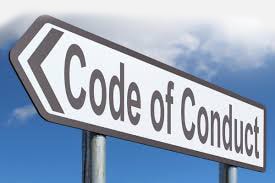- Hotline+971 50 27 28 29 1
- for Individual offices click here
STA's Team of Lawyers in Abu Dhabi, Bahrain, Doha, UAE, Luxembourg, Moscow, RAK, Sharjah, and Singapore. Find a Lawyer. ..
Read more informationJordanian Code of Conduct
 Jordanian government announces a new Ministerial Code of Conduct for the governance of conduct and the avoidance of conflict of interest. The new code will apply to Cabinet members and Ministers.
Jordanian government announces a new Ministerial Code of Conduct for the governance of conduct and the avoidance of conflict of interest. The new code will apply to Cabinet members and Ministers.
The new Code of Conduct will function as an abiding agreement and will provide that Ministers, in the fulfillment of the obligations in their executive role, must do so without having any conflict of interest. The Code is brought about with the new introduction in June of the new Prime Minister Omar al-Razzaz and was signed by the Prime Minister and all of the Cabinet members.
The new Conduct ensures a commitment by the Ministers in decently executing their duties, while continuously upholding the interests of the public as a whole and the good morals of the public. The Conduct also provides for the avenues and necessity of doing such, for any Minister or government employee to disclose any potential conflicts of interest that might arise during their service within the government.
The enactment of the code of conduct, as stated by Razzaz, will take place within the first 100 days of the government's formation. The administration of the code of conduct will take place within each Ministry, and each Ministry must include within their scope of work – the integration of the code of conduct within their entire scope of projects, programs and plans. This inclusion must be done in conjunction with the upholding of the Kingdom’s policy and maintaining its national goals.
In addition to the provisions regulating the Ministers of government, the code of conduct also provides the laws which oblige the Prime Minister and the members of his Council. Such laws ensure that they abide by the rule of law, act in full transparency, disclose any conflicts of interest, reveal all previous professionals and investments and perform their tasks with integrity, efficiency, fairness, and equality.
 The code also provides for the duties and responsibilities of the Ministers. It incorporates a provision that provides that Ministers be able to accept ordinary official or honorary gifts and other forms of appreciation, but such Ministers are not entitled to accept or to seek any gift, benefit or other allowance. It provides for the disclosure by the Ministers of gifts provided to them the exceed 5o Dinars. Any such gifts will be considered public funds and property to be transferred to the Department of General Supplies. The code also provides for the control of the conduct of influence in that Ministers will not be able to use their influence to benefit themselves, family members, or other related bodies. The Minister may not utilize information gained by Ministers in the fulfillment of their duties once they have left their Ministerial duties and they must wait one year after leaving the office to engage in contractual relations with the Ministry that they ran.
The code also provides for the duties and responsibilities of the Ministers. It incorporates a provision that provides that Ministers be able to accept ordinary official or honorary gifts and other forms of appreciation, but such Ministers are not entitled to accept or to seek any gift, benefit or other allowance. It provides for the disclosure by the Ministers of gifts provided to them the exceed 5o Dinars. Any such gifts will be considered public funds and property to be transferred to the Department of General Supplies. The code also provides for the control of the conduct of influence in that Ministers will not be able to use their influence to benefit themselves, family members, or other related bodies. The Minister may not utilize information gained by Ministers in the fulfillment of their duties once they have left their Ministerial duties and they must wait one year after leaving the office to engage in contractual relations with the Ministry that they ran.
Lastly, their family members or relatives must not trade in the shares of companies they are responsible for or benefit from the material and non-public information